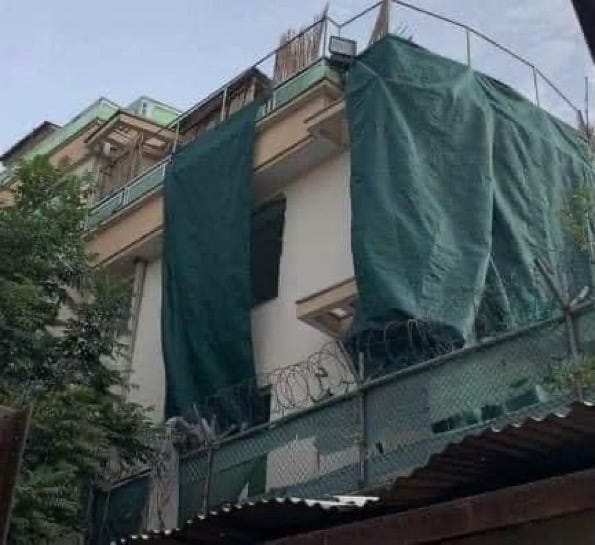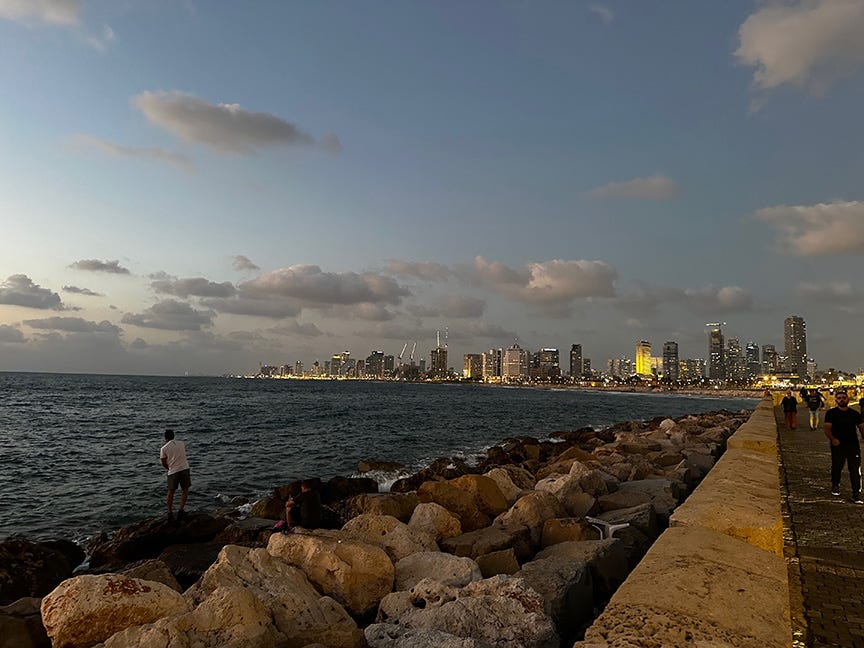DAY 299 OF THE WAR: Ismael Haniyeh Assassinated in Tehran, Living in a Time that is Anything But Normal
Tel Aviv Diary, July 31, 2024
Last night, Israelis went to bed concerned that Hezbollah might launch a retaliatory attack in response to the killing of Fuad Shukr overnight. Instead, we woke up to the shocking news that Ismael Haniyeh, the head of Hamas’s political office, was assassinated in Tehran. The incident occurred after his meeting with the Supreme Leader of Iran in the official government guest house—a place Haniyeh felt secure. The exact method of his assassination remains unclear; initial reports suggested a missile strike, either from a plane or another source. However, it has not been confirmed whether the assassination was carried out using a missile; the attack could have involved some sort of explosive device.
This afternoon, I appeared on i24News to discuss the insane, unprecedented events of the last 24 hours. The anchor, whom I have known and worked with for many years, asked us all to share our personal feelings about the events. I responded that, to some extent, after all these months, we've become accustomed to such situations. However, my wife and I had planned to have lunch today at a restaurant some distance from our home, but we decided against it. We were concerned about the possibility of an attack and didn’t want to leave our new dog alone in the apartment, so we canceled our plans.
After the show, I spoke with two i24 anchors, both of whom I’ve known for many years. Despite our concerns about the ongoing conflict, I said that I was more troubled by the incident involving right-wing extremists who forcibly entered the Sde Teiman Army base two days ago than the threat of a missile attack.
Of course, that’s not entirely true. It has been a long, nearly ten months living in a strange country. In the early months of the war, when Hamas was able to fire on the Tel Aviv area, I constantly checked for the nearest bomb shelter wherever I went. However, it gradually became apparent that the Tel Aviv area was relatively safe. Of course, this has unfortunately not been the case for people living or working in the North.
This time, the situation is different. Although we have a robust defense system, the possibility for a potential attack from Hezbollah and Iran, poses a much more serious threat. Just last night, as I walked our dog to the dog park, I found myself carefully calculating the distance to a nearby underground garage. Today, while riding a scooter to Jaffa, I was continually on the lookout for places to take cover in case the air raid sirens sounded.
Even before this escalation, the past few months have felt somewhat surreal. I receive alerts on my watch whenever there's a threat anywhere in the country. These alerts are frequent, with my watch buzzing multiple times a day. How normal is it to live in a place where your watch repeatedly notifies you of missile attacks targeting your country? It's not normal at all; in fact, it's anything but.
Now, to the events of the last 24 hours … It began last night when three F-35s launched multiple missiles at an apartment reportedly belonging to Fuad Shukr's lover. Shukr was the highest-ranking Hezbollah military officer. The apartment was located in the Dahieh district, a known Hezbollah stronghold and an area they believed Israel would not hit. Within hours, Israel confirmed Shukr’s death and, in an unusual move, Israel openly acknowledged responsibility for the attack.
So what happens now? Firstly, from a tactical perspective, the past day has proven highly successful for the IDF and any other parties involved. Combined with the recent elimination of Deif in Gaza, this period has been tactically advantageous for the IDF. Additionally, these actions have helped to restore some of the deterrence capability that Israel lost in October
.
SO, WHAT NOW?
The question is— What are the strategic implications of these latest events?
First, it’s disheartening to acknowledge that the prospects of a hostage release/ceasefire deal in the near or medium term have plummeted to nearly zero. Intelligence service reports have indicated to the government that these attacks will likely postpone any potential deal by weeks or even months. I harbored a slight hope that in Netanyahu’s address tonight, he might declare a victory and transition to negotiating a deal with Hamas to secure the return of our hostages and the conclusion of the war. However, this was purely wishful thinking, as it has become apparent over the past week that Netanyahu is not inclined toward a hostage deal. I’m afraid that for him, the priorities of his coalition take precedence over the urgency of returning one hundred and fifteen Israelis, who were abandoned by their country on October 7th.
Tonight, we heard a political speech in which Netanyahu repeatedly emphasized exactly how correct he has been. Netanyahu then highlighted the immense pressure he resisted from those urging him to end the war, which he claimed allowed for strategic successes such as the elimination of key figures and securing control over the Philadelphia corridor.
We are now in a waiting game. There is no doubt that both Hezbollah and Iran are going to respond, but whether they’ll decide to act together or separately is unknown. Whether they are prepared to initiate a full-scale war also remains uncertain.
The United States is standing beside us. The administration expressed support for last night’s attack on Fuad Shukr. They could hardly oppose our eliminating a man on whom they had placed a $5 million bounty. The U.S. also could not object to our reported assassination of Haniyeh, as they have stated that the entire leadership of Hamas—in contrast to Palestinian civilians—are fair targets. Vice President Harris provided a clear statement of support last night, and today, Defense Minister Gallant
Keep reading with a 7-day free trial
Subscribe to Tel Aviv Diary to keep reading this post and get 7 days of free access to the full post archives.





